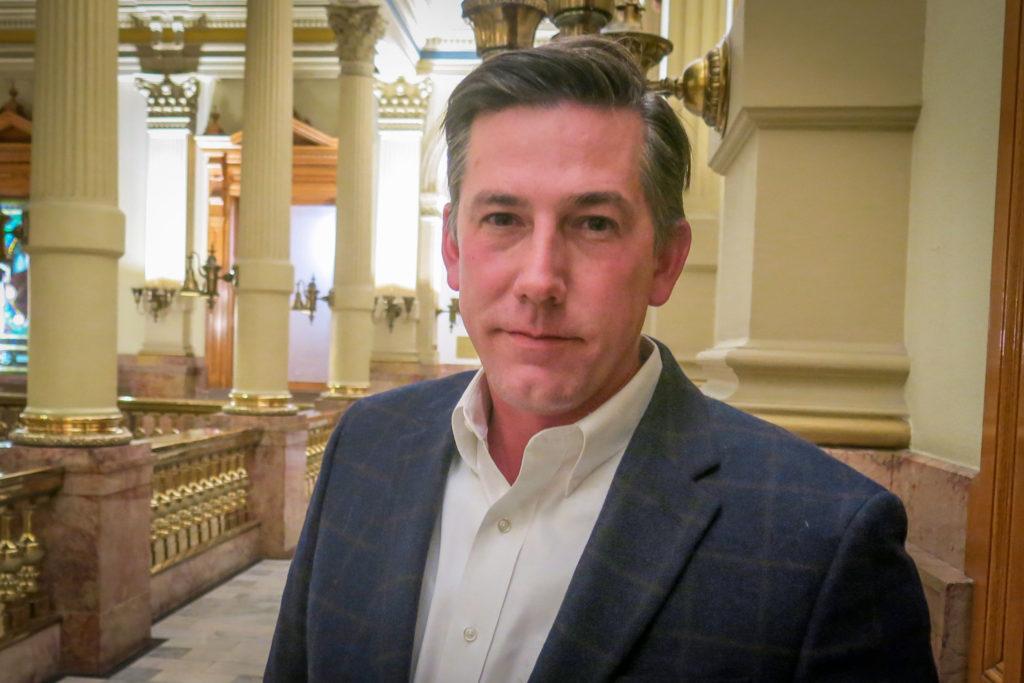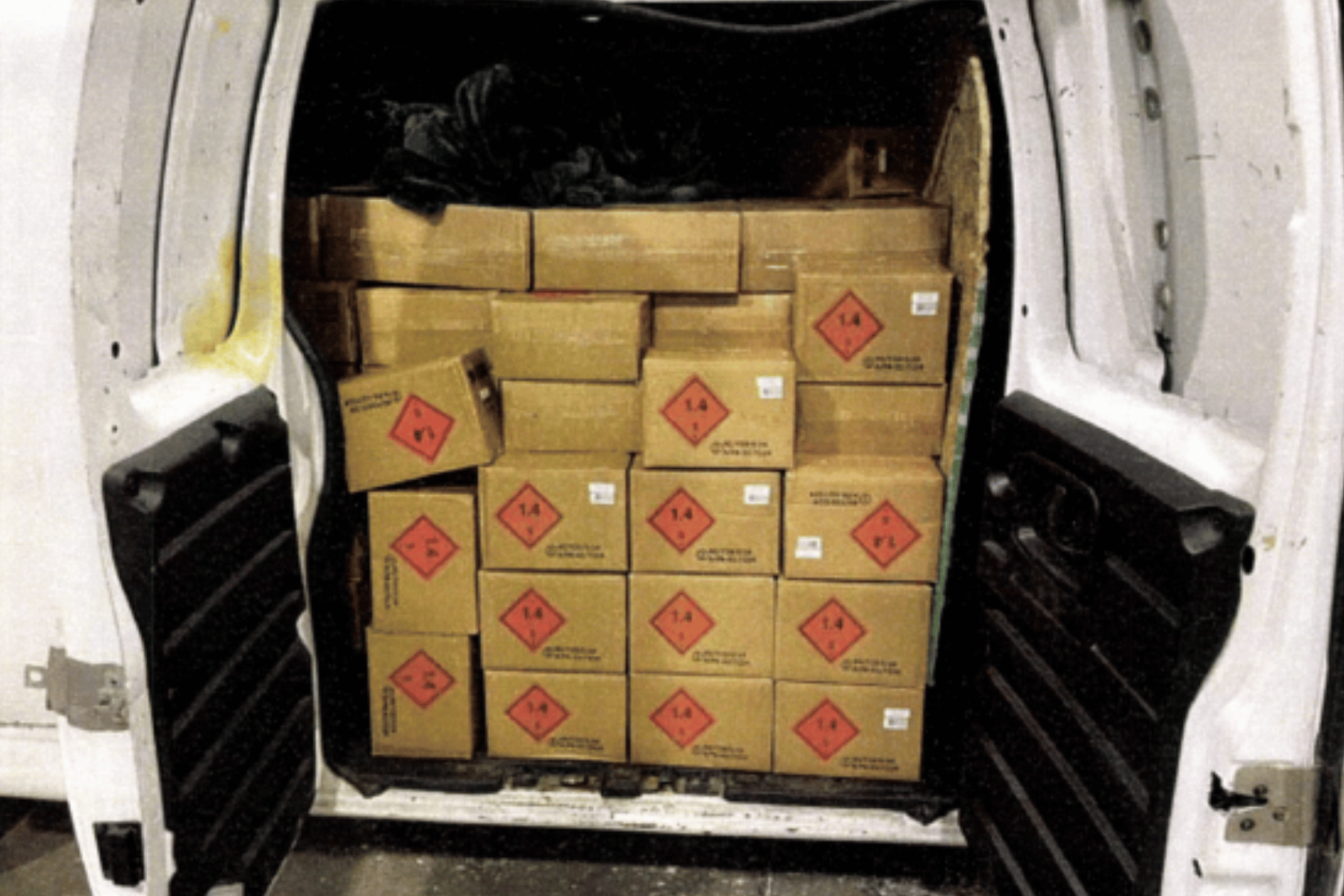
A bill to ban the sale of flavored nicotine products hit a road bump Wednesday. A fiscal review found a ban would lead to decreased tobacco sales at Colorado retail stores. That would result in a loss of at least $33 million annually to state revenues.
The impact comes due to “a decrease in revenue based on decreased use of the products overall,” said Jodi Radke, with the Campaign for Tobacco Free Kids.
Money from tobacco sales is used to fund smoking prevention and cessation and other health programs.
After roughly five hours of testimony, lawmakers on a House health committee delayed action on the bill. Its sponsors, including House Speaker KC Becker, a Democrat from Boulder, asked for additional time to work out its fiscal issues so it could go forward. “We’re just in a tough spot,” Becker said.
The debate in the House Health and Insurance Committee fell along familiar lines. Public health advocates and doctors joined a group of high schoolers to argue banning flavors would help prevent the next generation from getting hooked on nicotine. Convenience stores, vape shops and some adult consumers argued to lawmakers that it penalizes small businesses and adults who want to quit smoking traditional cigarettes.
Students and lawmakers noted vaping flavors are often sold in candy and cereal flavors like MnM’s, Cap’n Crunch, S’mores, Green Apple, Cotton Candy, Slurpee and Bubblegum. “Flavors are the number one reason the kids get hooked,” said Matthew McGregor, a junior at Boulder High School. “It makes it seem like less of a drug and more of like a candy or something else.”
Helen Cross, a senior at Nederland High, described how her peers, including on the volleyball team, considered it a rite of passage to try new flavors provided by older teammates. “Vaping wasn't about the intake of nicotine,” Cross said. “It was about socializing and trying new flavors with their friends.” Cross and others saw flavors as a potential pathway to addiction for young people.
High schoolers described high levels of regular use by their peers, saying surveys didn’t capture the rates they saw in school. The most recent comprehensive survey found one quarter of Colorado teens are currently vaping. Some students who did not vape said they had trouble thinking of classmates who didn’t use e-cigarettes.
One of the bill’s sponsors, Rep. Yadira Caraveo, a Democrat and a pediatrician from Denver, said in her clinic she’d seen a patient as young as 11 admitting to vaping.
Vape shop owners argued a ban would shutter shops and put people out of work.
Jason Casados, the owner of the vape shop and manufacturer Vapor Source, said 97 percent of products in its stores are flavored. He said he opened his first location in 2009 and has expanded to eight locations. “This is the American dream,” he said.“However, with the rapid and sometimes extreme changes happening at all levels of government, I wake up every day wondering if I can continue to provide not only for my own immediate family, but also for my 41 staff members.”
Others likened it to the blanket ban on alcohol a century ago. “Prohibition has never worked in our country, nor will work in our state now,” said James Howard, who said he was representing his two vapor shops in southern Colorado.
Grier Bailey, who represents convenience stores around the state, warned a flavor ban would cost stores potentially hundreds of millions of dollars in revenue. He predicted neighboring states would not pass their own bans. “All you're doing is you're driving sales that could be used to support local communities, local governments, local schools, and sending them to other states,” he said. “It makes absolutely no sense. It will drastically increase black market sales, take away money from traditional retailers who actually do care about communities.”

Amanda Wheeler, the owner of a pair of Colorado Springs vape shops, said flavors also play a key role in the way e-cigarettes help adult smokers quit.
“If a person is using like a nice pear flavor for example,that's something very pleasant that breaks that association with cigarettes,” she told CPR.
Wheeler worries the ban will “wipe out” small vape shops while leaving big tobacco companies still able to make and sell flavors.
Still, Dr. Ricky Mohan, a pulmonologist with the University of Colorado School of Medicine said some of the scientific literature suggests that if young people vape flavors, it will often lead to regular tobacco use. He said the bill could help prevent young people from taking up the habit. “This bill can make a difference, huge difference,” he said. “Because the flavoring is the hook (to start) and if the flavoring is not there, then there won't be that incentive to get engaged.
A long list of groups showed up to testify in favor of the bill.
That included representatives from health groups, like the Colorado Black Health Collaborative, and One Colorado, which is an LGBTQ advocacy group. The coalition argues a flavor ban is key to prevent the next generation from getting hooked on “dangerous and addictive products that cause heart, lung, brain disease and lead to premature death.” But people who gave testimony said the ban would also help the African American community in Colorado, where marketing around menthol cigarettes was pervasive.
“This policy is not about adults, it’s about kids,” said Radke. “Flavors do two things, they attract kids and keep adults using.”
The bill gives the state authority to ban flavored cigarettes and tobacco that come in varieties like “fruit, menthol, mint, wintergreen, chocolate, cocoa, vanilla, honey or any candy, dessert, alcohol beverage, herb or spice.”
A retailer would be fined at escalating levels for multiple offenses. That includes $250 for a first offense in a 24-month period and $500 for a second violation over that time. If a retailer is caught selling a flavored tobacco product five or more times, they would face a $15,000 fine and loss of the ability to sell tobacco or nicotine for at least a year.
Gov. Jared Polis has yet to say if he’d sign the bill should it pass. A spokesman said Polis “remains committed to tackling the growing problem of teen vaping,” and looks forward to reviewing the bill.
In all, more than 55 people signed up to testify.
Another bill this session would tighten regulations by requiring every nicotine retailer have a state license, which would also entail checks to ensure retailers are in compliance.









